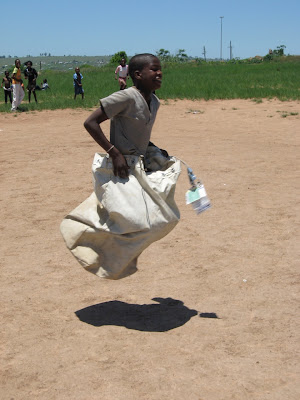“It’s beginning to feel NOT AT ALL like Christmas”
Spending Christmas away from your home poses some obvious challenges. The first, clearly, is the whole idea of being away from family from the holiday but after several consecutive Christmases away that’s not such a huge thing anymore. The real challenge is figuring out what to do to mark the day in an appropriately Christmasy way. That can be challenging for several reasons, like a) not having any presents to open because the mail takes so long to get here or b) not wanting to cook a gigantic meal just for the sake of it or c) not realizing it is Christmas because it is just so warm and sunny all the time. And let me tell you, that last point is inexplicably difficult to wrap your head around.
In any event, I had a truly fantastic Christmas this year. Let me tell you about it.
First, my fellow missionary Matt and I went to church in the morning. Apparently, the service starts at 8 on Christmas Day and not 8:30 so we missed the first half-hour (there’s the small matter of a language barrier; the worst thing is when you think you understand something so clearly and end up being wrong) but that didn’t matter. The service was terrifically joyous and celebratory. As many traditional English Christmas carols have been translated into Xhosa, we were able to belt out such favourites as “O Come All Ye Faithful” and “Hark the Herald Angels Sing,” just with different words.
Afterwards, we went over to my good friend Noxolo’s home in Itipini. She had invited us over for the Christmas meal she was cooking and I jumped at the opportunity. It was the first time I had ever been in Itipini and not been working in some way; I was just there because a friend had invited me and I had accepted. This may not sound like much to you but it was revolutionary for me. We sang lots of Christmas carols in both languages, ate a Xhosa meal, and danced to the music from the nearby shebeens (unlicensed bars). Our time with her family simply exceeds description. The combination of circumstances and events made me the happiest I have been in a very long time.
Naturally, we attracted a lot of attention, including from some people who thought I was around to hand out Christmas presents or open the clinic so a steady stream of visitors came by, in various states of intoxication. But I wasn’t going to let anything spoil my mood so I wished everyone a merry Christmas and sent them on their way.
Noxolo’s daughters, Esihle and Sinawo, who, to be blunt, can be bratty and spoiled at times, were delightful and spent the entire time on my lap. Most of Noxolo’s family - left to right, Noxolo; her brother Mxolisi; and her sister Lulekwa. The parents are long gone and none of them are older than me and yet have so much responsibility.
Most of Noxolo’s family - left to right, Noxolo; her brother Mxolisi; and her sister Lulekwa. The parents are long gone and none of them are older than me and yet have so much responsibility. It was also Lulekwa’s birthday. She is home on leave (for two weeks) from her job way up north in the mines. This is the first time she’s seen her son since about March.
It was also Lulekwa’s birthday. She is home on leave (for two weeks) from her job way up north in the mines. This is the first time she’s seen her son since about March. The kitchen Lulekwa and Noxolo cooked Christmas dinner in.
The kitchen Lulekwa and Noxolo cooked Christmas dinner in. All the gang - and assorted other passers-by - outside Noxolo’s shack afterwards. It is one of the nicest places in Itipini.
All the gang - and assorted other passers-by - outside Noxolo’s shack afterwards. It is one of the nicest places in Itipini. We couldn’t stay overly long at Noxolo’s as we had to get moving to Joe and Anna’s, my Mennonite missionary friends in Mthatha. We had another dinner there - the centrepiece was a warthog roast - met their colleague from Botswana, and played with the children. This felt like a “traditional” Christmas; there was wrapping paper and new toys all over the place. Joe brought out his mandolin and I had my guitar and we sang and played music long into the night.
We couldn’t stay overly long at Noxolo’s as we had to get moving to Joe and Anna’s, my Mennonite missionary friends in Mthatha. We had another dinner there - the centrepiece was a warthog roast - met their colleague from Botswana, and played with the children. This felt like a “traditional” Christmas; there was wrapping paper and new toys all over the place. Joe brought out his mandolin and I had my guitar and we sang and played music long into the night. And that was that.
And that was that.
(This is a two-part post about Christmas. Make sure to read the previous one as well to learn about what else I’ve been up to.)


















































